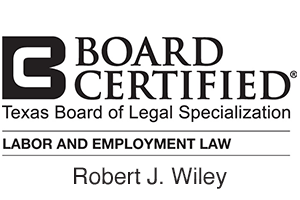in Austin, Texas
Independent Contractors
Know Your Rights as an Independent Contractor
Although many of the differences are not immediately obvious, there are a variety of distinctions that separate independent contractors from employees. Independent contractors are not bound to one employer and can independently market their services to multiple companies at the same time. Independent contractors pay their own employment taxes, and are not eligible for many benefits available to employees—for example, healthcare, retirement, overtime pay, and minimum wage. For these reasons, it is not uncommon for employers to seek to classify as many workers as possible as independent contractors, rather than employees. Misclassification of employees as independent contractors in order to avoid paying them benefits or overtime, or to escape legal liability, is a frequent source of lawsuits. Our Austin employment lawyers regularly fight to secure compensation for employees who have been wrongly classified by their employers.
How to Tell the Difference
Whether or not a worker is an independent contractor can be a very complicated question. Workers doing the same job can be labeled as an independent contractor under one law’s standards or an employee under another one. The IRS and Texas Workforce Commission have established a set of baseline standards for companies to use in determining whether or not their workers are employees. The most significant of these tests is who has control over how, when, and where a job is to be done: if the employer can dictate how a job duty is to be performed, how many hours a worker works, or where work that could be done anywhere must take place, it is likely to be an employer-employee relationship. Independent contractors are in charge of their own schedule, methods, and location; companies can demand a certain result from them but cannot control how they achieve that result. It is important to note that a worker cannot agree with their employer to be classified as an independent contractor regardless of the nature of their job. The title a worker is given does not have anything to do with legally-defined “employee status.” Only the actual dynamics of the work relationship will determine whether they are an employee or a contractor.
What to do if You Are Improperly Classified
It is not uncommon for employers to misclassify their employees as independent contractors when they should be properly classified as employees. This can stem from a dishonest desire to reduce costs and avoid paying compensation, or from simple ignorance of the law. In either case, such improper classification is illegal and results in employees not receiving benefits that they ought to receive, such as overtime pay, minimum wage, and family and medical leave. It can also make bringing discrimination claims more difficult. Most employment laws only cover employees, not independent contractors. Therefore, companies sometimes try to skirt such laws through misclassification.
If you feel that your status has been misclassified, you are able to file a complaint with either the IRS or the Texas Workforce Commission. Either the IRS or TWC will then investigate the situation and determine whether or not you should be considered an employee instead of an independent contractor. In the event that you have been misclassified, the investigating agency can require your employer to reclassify you and pay you any losses you have incurred because of the misclassification. This can include retroactive overtime compensation and benefits. You also have the ability (in some circumstances) to file a private lawsuit to recover additional back pay.
When Should You Take Action?
Bringing a claim to the IRS requires submitting a Form SS-8, which can only be submitted for an open tax year. If the 3-year statute of limitations for the year in question has expired, the IRS will not investigate your case. When filing a case under the FLSA, you have 2 years after you were first misclassified to make a claim for unpaid wages, unless your employer has willfully classified you incorrectly: in that case, the statute of limitations is 3 years. These deadlines are strict, and determining exactly what applies to your situation can be complicated. If you believe you’re your employer has incorrectly classified you as an independent contractor, you should contact our Austin employment lawyers as soon as possible. We can help you navigate the process of filing a claim with the IRS or TWC and help you to make the best case possible. If you believe you have been misclassified or have a claim for back pay, you can contact us by filling out our intake form or calling our office at (512) 271-5527.







